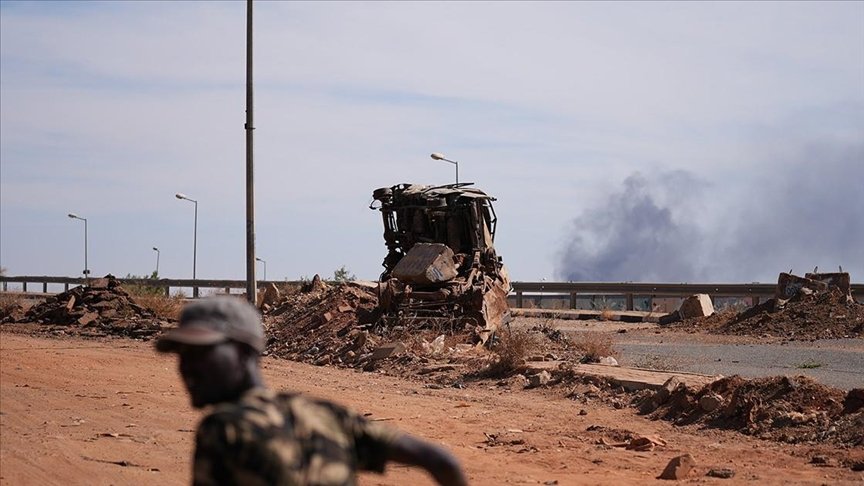Sudan today stands at the edge of collapse, its people caught in the crossfire of a brutal war between the Sudanese Armed Forces (SAF) and the paramilitary Rapid Support Forces (RSF). What began as a power struggle in April 2023 has metastasized into a nationwide conflict that has destroyed cities, displaced millions, and left the country teetering on the brink of famine. The fighting has intensified in recent months, with the RSF making significant territorial gains, most notably the capture of el-Fasher, the capital of North Darfur, after an eighteen-month siege. This victory not only marked a symbolic blow to the SAF but also opened the door for the RSF to expand eastward, threatening Sudan’s fragile central regions.
The humanitarian consequences of this war are staggering. Since late October, more than 80,000 people have fled el-Fasher and surrounding villages, many traveling on foot with little food or water. Camps in Darfur and Kordofan are overflowing, and aid agencies warn that Sudan is on the verge of famine. Reports of suspected mass graves near mosques in el-Fasher have raised fears of atrocities reminiscent of the Darfur genocide of the early 2000s. Civilians describe harrowing journeys, carrying children on their backs and leaving behind homes reduced to rubble. Doctors recount operating without anesthesia, while teachers attempt to turn refugee camps into makeshift schools. These stories underscore the human cost of a war that shows no sign of abating.
The military dynamics of the conflict reveal a troubling shift. The RSF has increasingly relied on drone warfare, striking airports, army headquarters, and even infrastructure such as the Merowe dam. This technological adaptation has given the RSF a decisive edge, forcing the SAF onto the defensive. Once seen as the guarantor of Sudanese sovereignty, the SAF now struggles to maintain control of strategic corridors linking Darfur to the rest of the country. The rejection of a proposed three-month ceasefire by the SAF further highlights the entrenched mistrust between the two sides and the failure of international mediation. The United States, Saudi Arabia, Egypt, and the United Arab Emirates have all attempted to broker peace, but their competing interests have undermined collective efforts. Egypt and Saudi Arabia lean toward supporting the SAF, while the UAE has been accused of covertly backing the RSF, turning Sudan into a proxy battlefield for regional powers.
The collapse of Sudan’s democratic transition in 2021 set the stage for this crisis. After the ouster of longtime ruler Omar al-Bashir in 2019, Sudanese citizens hoped for a civilian-led government. Those hopes were dashed when a military coup derailed the transition, leaving a vacuum that armed groups quickly exploited. Today, both the SAF and RSF claim legitimacy, but civilians increasingly view both factions as illegitimate actors responsible for atrocities. Without inclusive political institutions, military victories alone cannot secure peace. Sudan’s war is therefore not only a battle for territory but also a struggle for legitimacy, with neither side offering a credible vision for the country’s future.
The regional implications of Sudan’s war are also profound. Neighboring countries such as Chad, South Sudan, and Egypt are absorbing waves of refugees, straining their already fragile economies. The Horn of Africa, long plagued by instability, now faces another destabilizing force. Sudan’s location along the Red Sea corridor makes it strategically vital for global trade, and prolonged conflict threatens shipping routes and regional commerce. The risk of extremist groups exploiting ungoverned spaces is also rising, as prolonged instability creates fertile ground for terrorism. Migration pressures could extend beyond Africa, fueling political tensions in Europe and the Gulf.
Analytically, Sudan’s crisis reflects broader trends in modern warfare. The rise of paramilitary forces, the use of drones by non-state actors, and the erosion of traditional state authority are all evident in this conflict. Sudan is becoming a case study in how fragile states collapse under the weight of competing armed factions and external interference. The RSF’s ability to seize territory and deploy advanced weaponry demonstrates how non-state actors can rival national armies, while the SAF’s reliance on traditional military structures has left it vulnerable. This dynamic underscores the need for international actors to rethink how they approach conflicts in fragile states, where traditional diplomacy and military aid may no longer suffice.
The outlook for Sudan is bleak. With ceasefire talks stalled and both sides escalating, the country risks sliding into a protracted civil war akin to Syria or Yemen. The RSF’s momentum suggests it could expand its control eastward, while the SAF may resort to desperate counterattacks. Civilians will continue to bear the brunt of this escalation, facing displacement, hunger, and violence. For peace to be possible, three conditions must be met: unified international pressure on both factions, humanitarian corridors to deliver aid, and the revival of a political process that includes civilian voices. Without these, Sudan may become another “forever war,” joining the ranks of conflicts with no clear resolution.
Sudan’s current situation is a tragic convergence of failed diplomacy, military escalation, and humanitarian collapse. The RSF’s advances, the SAF’s rejection of ceasefire proposals, and the displacement of tens of thousands paint a grim picture of a nation unraveling. Yet Sudan’s crisis is not inevitable. With sustained international engagement, genuine political inclusion, and urgent humanitarian action, the trajectory could change. For now, however, the people of Sudan remain trapped in a war that shows no sign of ending, their lives defined by uncertainty and survival in the face of overwhelming violence.





















